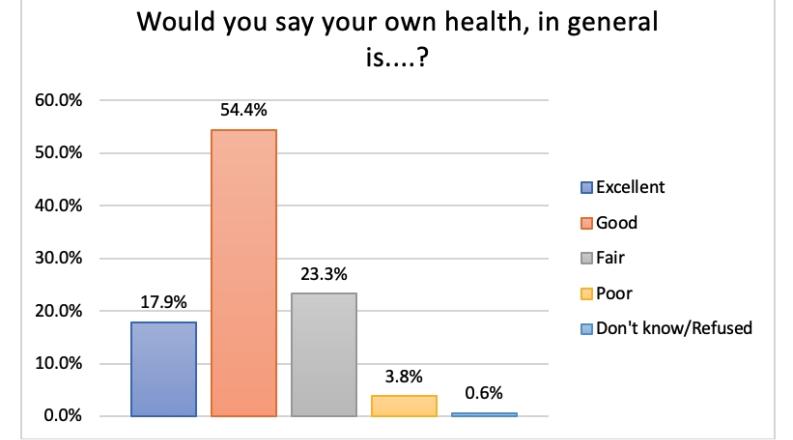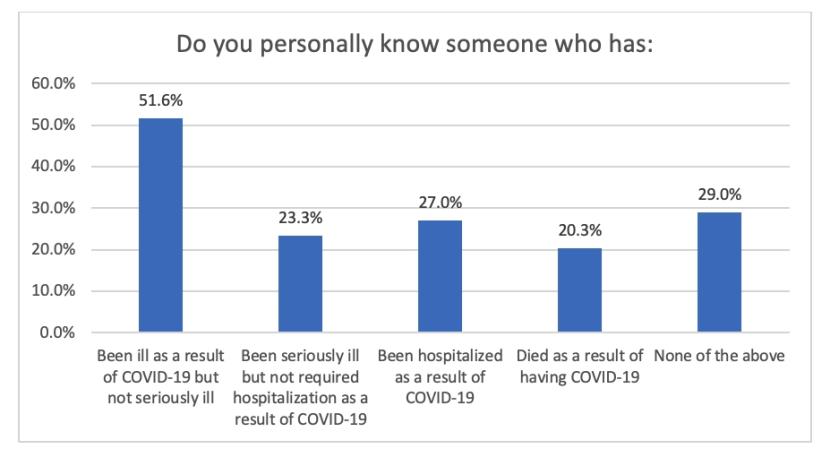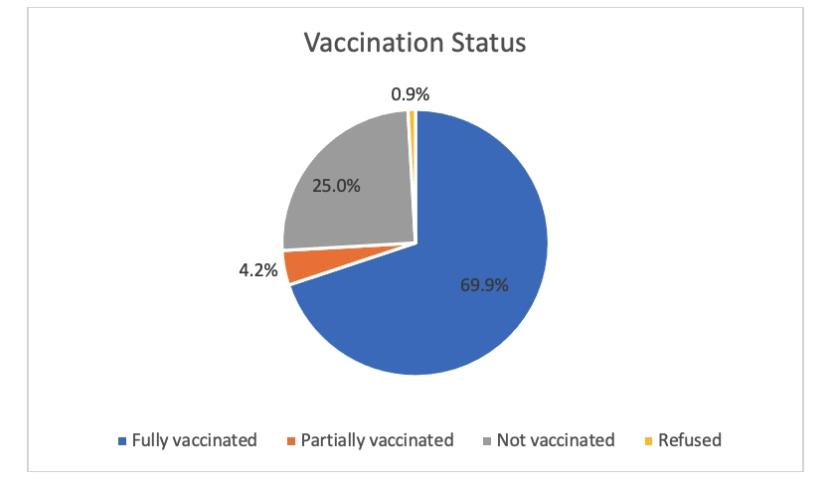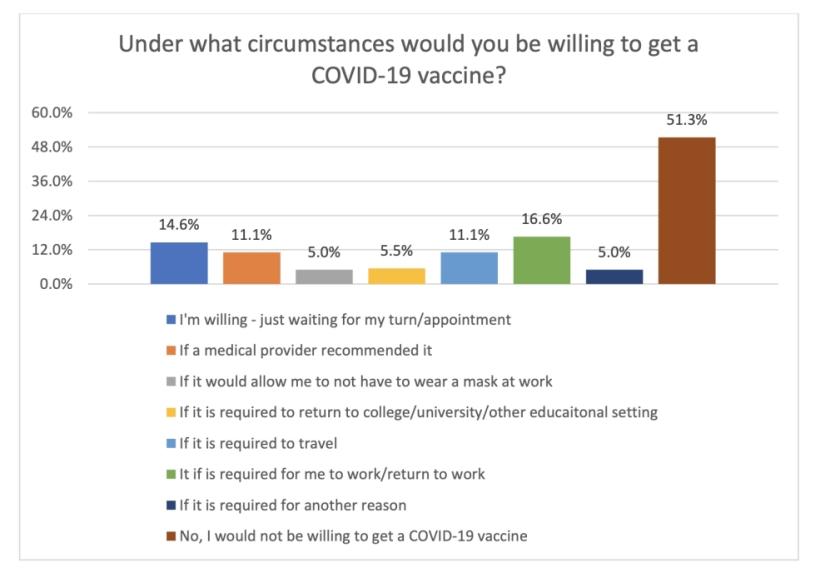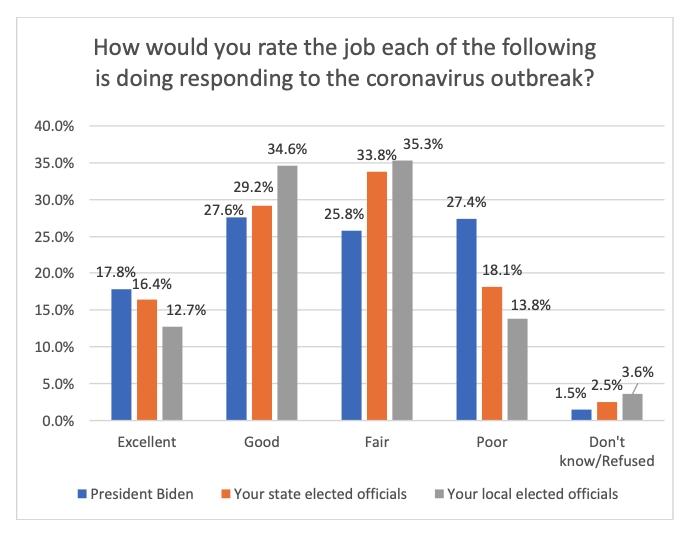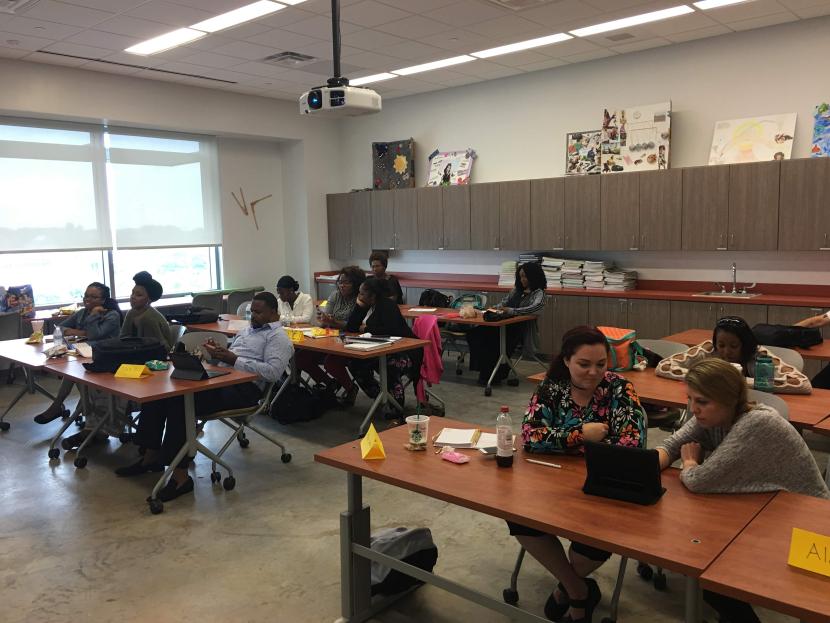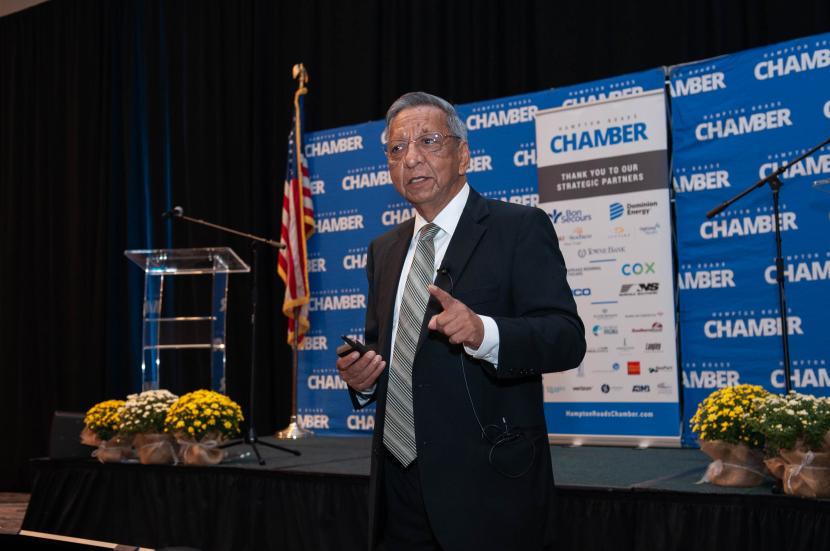Introduction
The Social Science Research Center (SSRC) at Old Dominion University recently completed data collection for the 12th annual Life in Hampton Roads (LIHR) survey. The purpose of the survey is to gain insight into residents' perceptions of the quality of life in Hampton Roads and the COVID-19 pandemic, as well as other topics of local interest such as perceptions of police, employment and other issues. A total of 796 online and telephone surveys were completed between July 12 and Oct. 3, 2021. It is important to note that the methodology this year differs from previous Life in Hampton Roads surveys. For several reasons, including continued concerns about COVID-19 and labor shortages, we conducted both telephone surveys and online panels. This change limits to some degree the ability to compare this year's results with those from previous years or to confidently generalize the results to the Hampton Roads population as a whole. Nonetheless, we note that an increasing number of surveys have moved online in recent years, and that in many instances useful data has been developed despite the challenges of online survey research. For more detailed information on the methodological changes and potential impacts please see the Methodology section in the full report, or please contact the SSRC directly.
Health, Experiences with COVID & Vaccines
More than 72% of respondents rated the quality of their own health as excellent (17.9%) or good (54.4%). This is lower than previous years, which is not surprising given ongoing pandemic conditions. Further, the percentage of respondents rating their health as excellent or good has been declining over recent years (e.g., from 82% in 2017).
Respondents were asked if they personally knew someone who was affected by COVID-19. One in five respondents (20.3%) knew of someone who had died as a result of COVID-19. More than half (51.6%) knew of someone who has been ill but not seriously ill. Almost one in four (23.3%) knew of someone who had been seriously ill but not required hospitalization and 27% knew of someone who has been hospitalized. Just under one-third (29%) responded "none of the above" to knowing someone who was personally ill with COVID-19. This reflects the increasing levels of personal experience with the pandemic from last year. In 2020, nearly two-thirds (61%) responded "none of the above" and only 8% know someone who had died as a result of having COVID-19.
COVID-19 Vaccination Status
The Food and Drug Administration (FDA) approved the use of the Moderna and Pfizer vaccines for emergency use in December 2020. By the time the Life in Hampton Roads survey began, about 5 million adults in Virginia had at least one dose of the vaccine(1). Hampton Roads residents were asked if they had been vaccinated with at least one dose of a COVID-19 vaccine and 74.3% indicated yes. Overall, 69.9% of respondents indicated that they were fully vaccinated and 25% indicated that they were not vaccinated (even partially).
(1) For example, see: https://ourworldindata.org/covid-vaccinations?country=USA
The 25% who indicated that they had not received at least one dose were asked under what circumstances they would be willing to get a vaccine. More than half (51.3%) indicated that they would not be willing to get a vaccine in any of the circumstances asked about. Another 16.6% indicated that they would be willing if it was required for them to work or to return to work. About 15% indicated that they were willing and just waiting for their turn or their appointment. Eleven percent indicated they would be willing if a medical provider recommended it or if it is required to travel. About 5% indicated they would be willing if it would allow them to not have to wear a mask at work, if it would be required to return to college/university or some other educational setting, or if it is required for other reasons.
Those who indicated that they would be unwilling to get a COVID-19 vaccine were asked an open-ended/free response question about why they choose to not get vaccinated. The most frequent responses included a general distrust of the government or the pharmaceutical companies, concern about the safety of the vaccines or the possible side effects, and the speed at which they were developed.
COVID-19 Response
Respondents were asked to rate the job of President Joe Biden, their state elected officials and local elected officials in terms of responding to the coronavirus outbreak. President Biden received the highest percentage of "excellent" ratings (17.8%) but also the highest percentage of "poor" ratings (27.4%). Local elected officials received the highest percentage of "good" (34.6%) and "fair" ratings (35.3%). When combining "excellent" and "good" responses, local elected officials were rated slightly higher than state elected officials and the president (47.3% compared to 45.6% and 45.4% respectively). Respondent ratings of state and local officials' response to the pandemic were fairly similar to the ratings from 2020, though both were down slightly. In 2020 just over half of respondents (51%) rated state and local officials' pandemic response as good or excellent.
The Life in Hampton Roads Data report and press releases will be placed on the Social Science Research Center website as they are released (http://www.odu.edu/al/centers/ssrc).
Tancy Vandecar-Burdin, PhD
Director
The Social Science Research Center
Old Dominion University
757-683-3802 (office)



